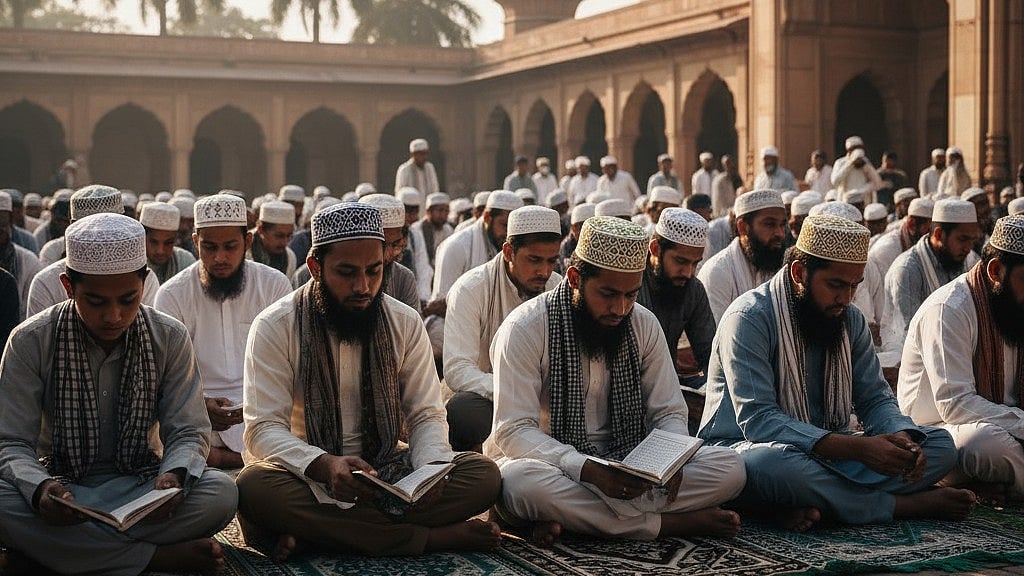AI-Generated Images Fuel Surge Of Anti-Muslim Hate In India, Finds Report
The study, which analysed over a thousand AI-generated images, found that these visuals are being used to spread disinformation, reinforce stereotypes, and incite hostility against Muslims.

Ai generated image shared on social media. | X/@bjpallnews_113456
New Delhi: A new report by the Centre for the Study of Organised Hate (CSOH) has documented how artificial intelligence tools are increasingly being used to create and circulate Islamophobic content in India.
The study, which analysed over a thousand AI-generated images, found that these visuals are being used to spread disinformation, reinforce stereotypes, and incite hostility against Muslims.
AI tools amplify existing prejudices
Co-researcher Nabiya Khan, speaking to Maktoob, said that the surge in AI-generated Islamophobic content reflected “a symptom and an amplifier of the risks of AI’s rise.” She explained that these technologies have made “old prejudices scalable, faster, cheaper, and harder to trace.”
The report examined 1,326 AI-generated images shared by 297 social media accounts across platforms such as X, Instagram, and Facebook. These accounts had a record of posting hateful content and collectively generated 27.3 million engagements. Instagram posts received the highest traction, pointing to limited moderation mechanisms on the platform.
According to Khan, “AI is not creating new hate but automating existing hate.” The study found that much of the content builds on long-standing stereotypes, depicting Muslims as violent, predatory, or immoral. Popular Islamophobic tropes such as “Love Jihad,” “Population Jihad,” and “Muslim criminality” were repackaged using hyperrealistic or humorous imagery, making the content visually appealing and widely shareable.
Online hate blurs facts and fuels real-world risks
The report found that AI-generated visuals were often layered over real incidents to distort narratives and give them a sectarian angle. Examples include fabricated depictions linking Muslims to the Jalgaon train tragedy, falsely described as “Rail Jihad,” accompanied by images of men in Muslim attire shown engaging in violence.
Khan highlighted how sexualised portrayals of Muslim women received particularly high engagement, observing that “Islamophobia and misogyny aren’t separate phenomena, but they feed off each other.”
The two-year study found spikes in AI-generated hate content coinciding with major online trends, such as the “Ghibli art” wave in March and the “Rail Jihad” campaign in September 2024. It also noted the circulation of AI-generated hate material by right-wing media networks, including Sudarshan News, Swarajya, Organiser Weekly, OpIndia, Aapka Bharat, Satyaagrah, and other news channels.
Despite the severity of the findings, only one out of 187 reported posts was removed by social media platforms. The report concluded that existing legal and moderation frameworks remain inadequate. “Platforms must invest in AI-aware moderation systems, strengthen synthetic media detection, and apply their rules with consistency,” it recommended.
RECENT STORIES
-
-
-
-
-